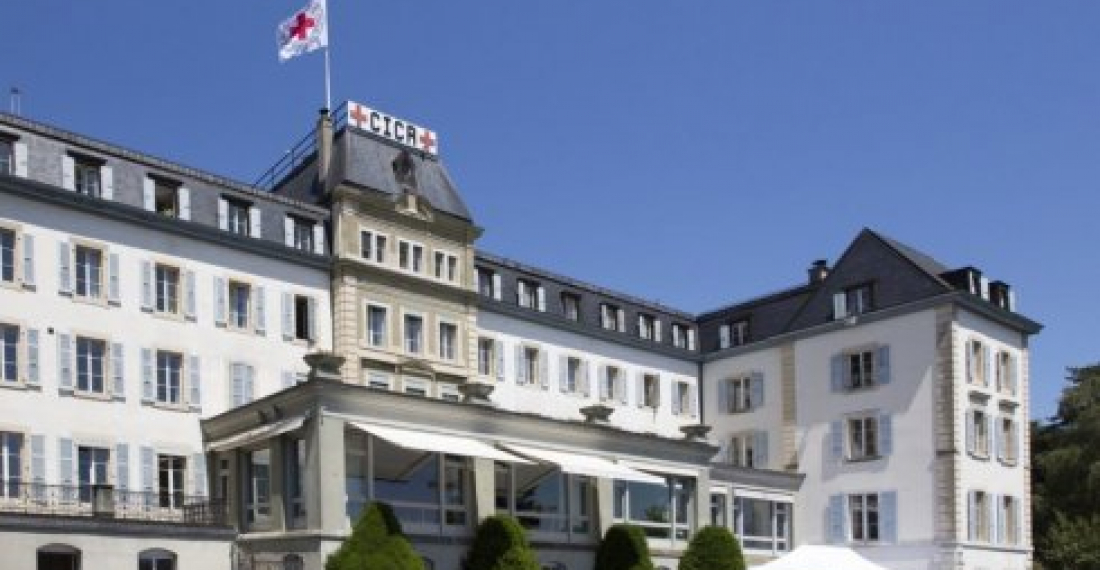As the recent escalation of the Nagorno-Karabakh conflict worsens, civilians are bearing the brunt of the surge in violence, the International Committee of the Red Cross said on Friday (2 October) in a statement issued at its internatiuonal headquarters in Geneva. The statement says:
Civilian deaths and injuries, including of children, have been reported on both sides of the line of contact, and in Armenia.
"Since the escalation started, the ICRC has provided emergency medical supplies to hospitals and body bags to the forensic bureau in Nagorno-Karabakh. We are currently trying to assess health-related and other humanitarian needs, including the situation of those who have left their homes. Our ability to move in the field is limited because of the intensity of fighting and the volatility of the situation," said Bertrand Lamon, ICRC's head of mission in Nagorno-Karabakh.
"We are already seeing the terrible impact this escalation is having on civilians. The ICRC is ready to assist where needed, when conditions allow it, including supporting the Azerbaijan Red Crescent Society's local branches as they work in the community," said Gerardo Moloeznik, the head of ICRC's sub-delegation in, Barda, Azerbaijan.
The ICRC has received reports of people trying to move themselves and their families to safety. Many other families, including babies and young children, are spending days and nights sheltering in the unheated basements of their buildings, in an effort to escape the violence.
There are also reports of hundreds of homes and civilian infrastructure such as schools and hospitals destroyed by heavy artillery. Where buildings have been damaged, people are exposed to the dangers of unexploded ordnances.
This new upheaval comes at the onset of winter, with children just weeks into their school term and when people are already trying to protect themselves and their families from the effects of the coronavirus pandemic.
"People have been in touch with the ICRC who are, terrified for themselves and their families and at a loss as to where to go or what to do to stay safe. They are caught in the crossfire and deeply fearful for their safety and future. We are committed to helping all those who are feeling the impact of this escalation in violence. We call on the sides to protect civilians and the key infrastructure and services they need to survive, and abide by their obligations under international humanitarian law," said Martin Schüepp, ICRC's Eurasia regional director in Geneva.
The ICRC is extremely worried that the current turmoil and displacement may lead to a surge of COVID-19 cases due to people taking refuge in shelters for hours or being accommodated in communal buildings or places with inadequate sanitation.
Additionally, this escalation will take a toll on the mental health of the population, who have already lived with the impact of this conflict for almost 30 years and are now anxious about their health and future due to the COVID-19 pandemic.
The ICRC has been present in the region since 1992 carrying out humanitarian work in connection with the Nagorno-Karabakh conflict. Through the delegations in Baku and Yerevan and the mission in Nagorno-Karabakh, the ICRC supports communities living along the line of contact and international border between Armenia and Azerbaijan.
The ICRC also works to clarify the fate of missing persons and help their families, visits detainees and acts as a neutral intermediary to facilitate transfer and repatriation of released persons or the return of the bodies of deceased soldiers.
We collaborate closely with the Armenian Red Cross and the Azerbaijani Red Crescent, coordinating activities aimed at assisting people affected by the Nagorno-Karabakh conflict across the region.
source: commonspace.eu with ICRC Geneva.
photo: ICRC Headquarters Geneva (archive picture)







